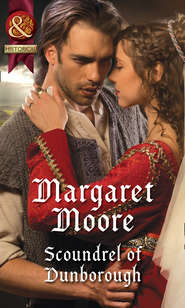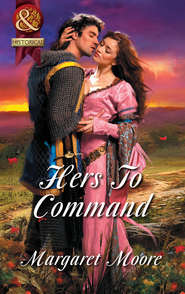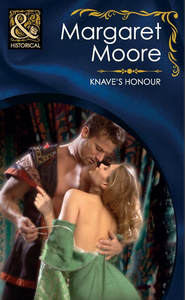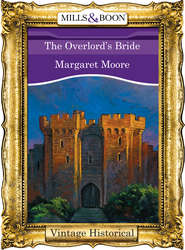По всем вопросам обращайтесь на: info@litportal.ru
(©) 2003-2024.
✖
Regency: Rogues and Runaways: A Lover's Kiss / The Viscount's Kiss
Настройки чтения
Размер шрифта
Высота строк
Поля
“It is very kind of you, cousin,” she murmured, looking down as coyly as any well-brought-up young lady, her dark lashes spread upon her cheeks.
He could keep cool when she was angry. He had plenty of experience with tantrums and volatile tempers, and had learned to act as if they didn’t affect him in the slightest.
This affected him. She affected him.
He didn’t want to be affected, by her or any other woman.
“Oh, it is our pleasure!” the modiste cried, pushing her way between them. “Allow me to introduce myself, my dear. I am Madame de Malanche, and it shall be my delight to oversee the making of your gowns. All the finest ladies in London are my customers. Lady Jersey, Lady Castlereagh, Princess Esterhazy, Countess Lieven, Lady Abramarle, and the beautiful Lady Chelton, to name only a few.”
Drury wished the woman hadn’t mentioned the beautiful Lady Chelton.
“I see that gown fits you to perfection—and looks perfect, too, I must say! I’m sure between the two of us you will be of the first stare in no time.”
Miss Bergerine regarded her with dismay, a reaction the modiste’s overly befrilled and beribboned gown alone might inspire. “I do not wish to be stared at.”
Madame de Malanche laughed. “Oh, la, my dear! I mean all the young ladies will envy you!”
Not if she persuaded Juliette to wear gowns similar to her own, Drury thought.
“I believe you’ll find my cousin has very definite ideas of what she’ll wear, madame,” Drury said. “I trust you will defer to her requests, even if that means she may not be the most fashionably attired young lady in London.”
“Mais oui, Sir Douglas,” Madame said, recovering with the aplomb of a woman experienced in dealing with temperamental customers. “She will need morning dresses, of course, and dinner dresses. An ensemble or two for in the carriage, garden dresses, evening dresses, a riding outfit, a few walking dresses and some gowns for the theater.” She gave Drury a simpering smile. “Everyone knows that Sir Douglas Drury enjoys the theater.”
Her tone and coy look suggested it wasn’t so much the plays that Sir Douglas enjoyed as the actresses.
“I do,” he replied without any hint that he understood her implication. Or that she was quite wrong.
“I do not think I will be going to the theater,” Juliette demurred. “Or riding, or out in a carriage. Or walking in gardens.”
Madame de Malanche regarded her with alarm. “Are you ill?”
“Non.” Juliette glanced at Drury. “I simply will not need so many expensive clothes.”
He could hardly believe it. A woman who wouldn’t take advantage of the opportunity to run riot and order a bevy of new clothes whether she needed them or not? It wasn’t as if she didn’t require clothing, judging by the garments he’d already seen her wearing.
Or did she think he was ignorant of the cost? Or that he couldn’t afford it? “Perhaps no riding clothes, since I believe my cousin is no horsewoman. Otherwise, I give you carte blanche to get whatever you like, Juliette.”
Madame de Malanche’s eyes lit with happy avarice, but Juliette Bergerine’s did not. “How can I ever repay you?”
She had obviously forgotten her role—and in the company of the sort of woman who could, and would, spread any interesting tidbit of gossip she heard.
He quickly drew Juliette into a brotherly embrace. “What is this talk of repayment? We are family!”
He dropped his voice to a whisper. “Remember who you are supposed to be.”
He drew back and found Juliette regarding him with flushed cheeks. His own heartbeat quickened—because of her mistake, of course, and not from having her body pressed so close to his.
After all, why would that excite him? He’d had lovers, most recently the beautiful Lady Chelton. Yet he couldn’t help thinking that most of them, including Sarah, would have taken advantage of this situation with a glee and greed that would have put the greatest thief in London to shame.
“My cousin is a modest, sensible young lady, as you can see,” he said, addressing the room in general. “Having suffered so much during the war, she naturally feels compelled to be frugal. However, I have no such compulsion when it comes to my cousin’s happiness, so please make sure she has everything she requires, and something more besides.”
“I most certainly shall!” Madame de Malanche cried eagerly, while the linen-draper and silk mercer smiled, as did the shoemaker, still tapping away in the corner.
The overly excited haberdasher waved a pair of stockings like a call to arms and the milliner came boldly forward with the most ridiculous hat Drury had ever seen, quite unlike the charming chapeau Juliette had worn when she’d left him in her room.
“Sir Douglas, the corsetier has arrived,” Millstone intoned from the doorway.
That was too much.
“I believe that is my cue to depart,” Drury said, hurrying to the door. “I leave it all to you, Juliette. Adieu!”
In spite of his desire to be gone, he paused on the threshold and glanced back at the young woman standing in the center of the colorful disarray. She looked like a worried general besieged by fabric and furbelows, and he felt a most uncharacteristic urge to grin as he beat a hasty retreat.
Only later, when Drury was in his chambers listening to James St. Claire ask for his help to defend a washerwoman unjustly accused of theft, did he realize that he had left a Frenchwoman to spend his money as she liked. Even more surprising, he was more anxious to see her in some pretty new clothes than worried about the expense.
At the same time, as the modiste and others pressed Juliette to select this or that or the other, she began to wonder if there wasn’t another motive for Sir Douglas Drury’s generosity.
Chapter Five
Miss B. damned nuisance. Asks the most impertinent questions. Might drive me to drink before this is over.
—from the journal of Sir Douglas Drury
Holding a sheaf of bills in her hands, Juliette paced Lord Bromwell’s drawing room as she waited for Sir Douglas to return.
When the footman had first shown her into the enormous room, she’d been too abashed to do anything except stand just over the threshold, staring at the decor and furnishings as if she’d inadvertently walked into a king’s palace.
Or what she’d imagined a palace to be.
At least three rooms the size of her lodgings could easily fit in this one chamber, and two more stacked one atop the other, the ornate ceiling was so high. She craned her neck to study the intricate plasterwork done in flowers, leaves and bows, and in the center, a large rondel with a painting of some kind of battle. The fireplace was of marble, also carved with vines and leaves. The walls were covered in a gold paper, which matched the white-and-gold brocade fabric on the sofas and gilded chairs. The draperies were of gold velvet, fringed with more gold. A pianoforte stood in one corner, where light from the windows would shine on the music, and an ornate rosewood table sported a lacquered board, the pieces in place for a game of chess. Several portraits hung upon the walls, including one that must be of Lord Bromwell when he was a boy—a very serious boy, apparently.
The sight of that, a reminder of her kind host, assuaged some of her dismay, and she dared to sit, running her fingertips over the fine fabric of the sofa.
As time had passed, however, she’d become more anxious and impatient to present Sir Douglas with the bills. Although she’d vetoed the most expensive items and tried to spend Sir Douglas’s money wisely, the total still amounted to a huge sum of money—nearly a hundred pounds.
If what she feared was true, Sir Douglas would expect something in return for his generosity, something she was not prepared to give. If that were so, she would have to leave this house and take her chances on her own. It was frightening to think his enemies might still try to harm her, but she would not be any man’s plaything, bought and paid for—not even this one’s. Not even if she couldn’t deny that his kiss had been exciting and not entirely unwelcome.
At last, finally, she heard the bell ring and the familiar deep voice of the barrister talking to the footman. She hurried to the drawing-room door. Having divested himself of his long surtout, Sir Douglas strode across the foyer as if this house were his own. As before, his frock coat was made of fine black wool, the buttons large and plain, his trousers black as well. His shirt and cravat were brightly white, a contrast to the rest of his clothes and his wavy dark hair.
“Cousin!” she called out, causing him to pause and turn toward her. “I must speak with you!”
Raising a brow, he started forward while she backed into the drawing room. “Yes, Juliette? Are those today’s bills?”
“Oui,” she replied. She waited until he was in the room, then closed the door behind him before handing him the bills. “I want to know what you expect from me in return for this generosity.”
The barrister’s eyes narrowed and a hard look came to his angular face as he shoved the bills into his coat without looking at them. “I told you before I don’t expect to be repaid.”
“Not with money, perhaps.”











